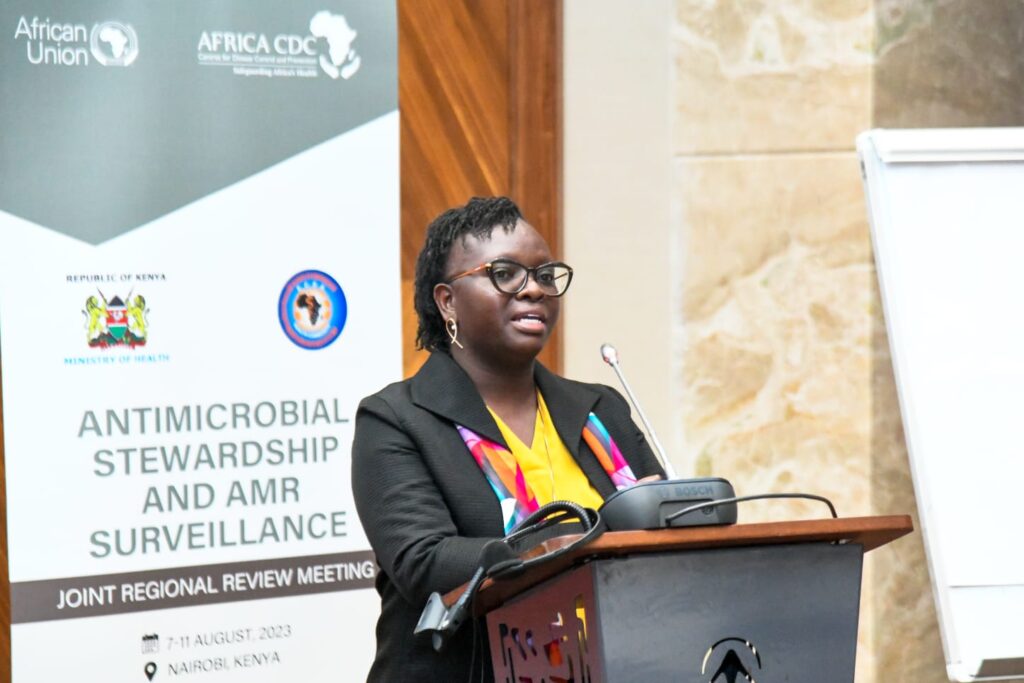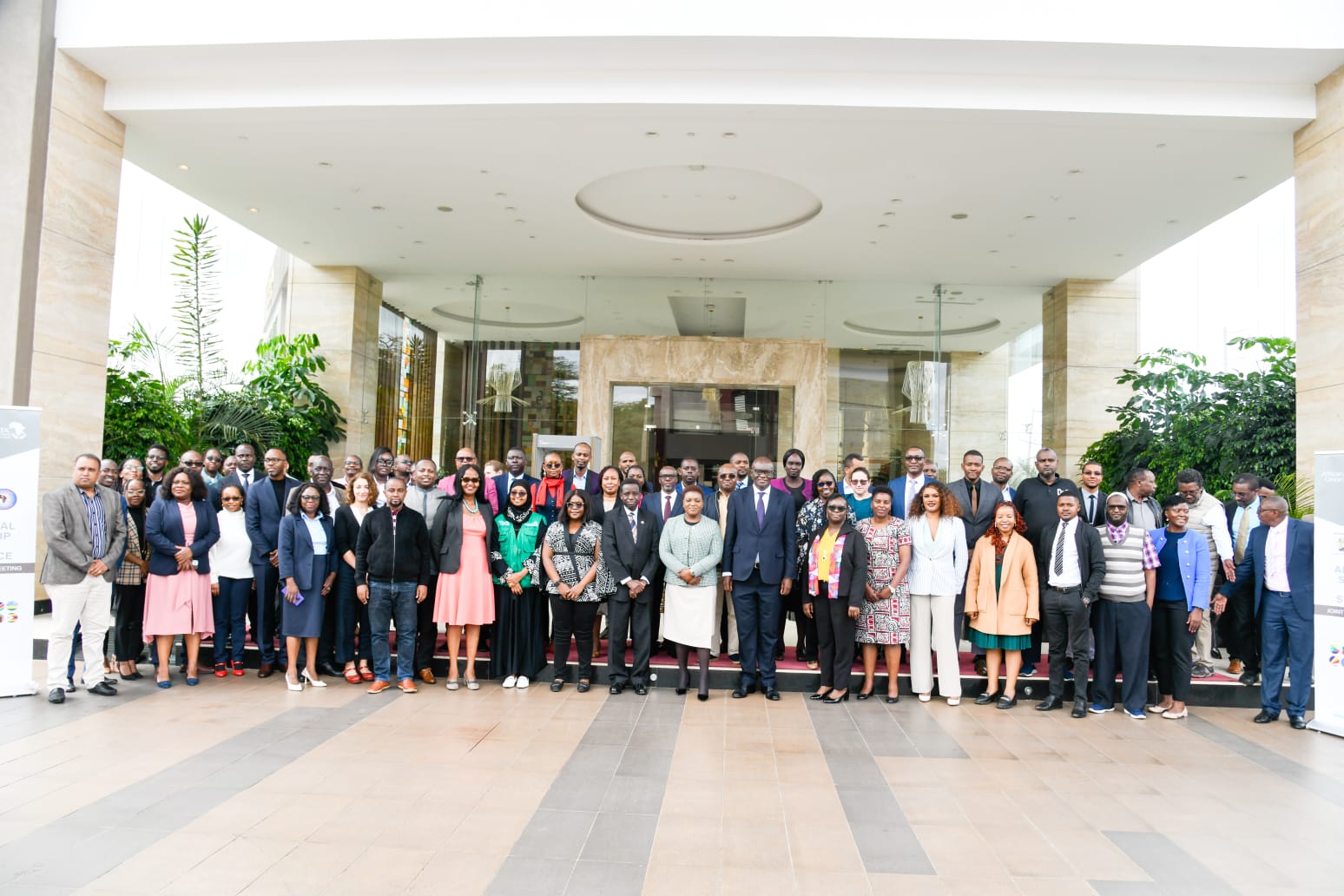Theme: "Ending TB in the Mines Started with Me" Date: 3rd – 7th June 2024…
“Unveiling Solutions: Regional Workshop in Nairobi Champions Antimicrobial Stewardship Against Global Threat of AMR

The unique landscape of Africa mandates region-specific approaches for the implementation of National Antimicrobial Stewardship programs and the deployment of AMR surveillance systems. Addressing this challenge head-on from August 7th to 11th, 2023, the East, Central, and Southern Africa Health Community (ECSA-HC) and the Africa Centres for Disease Control and Prevention (Africa CDC) collaboratively orchestrated a significant regional workshop centered on the theme of Antimicrobial Stewardship in Nairobi, Kenya. The event brought together representatives from 16 African Union member states, including Kenya, Zambia, Zimbabwe, Namibia, Tanzania, Comoros, Seychelles, South Africa, Mauritius, Ethiopia, Uganda, Rwanda, Malawi, South Sudan, Djibouti, and Mozambique.

Officiated by Health Cabinet Secretary Susan Wafula, the conference served as a crucial platform for addressing the global crisis of antimicrobial resistance (AMR), an urgent and multifaceted challenge that necessitates immediate and unified attention.
Cabinet Secretary Wafula emphasized the gravity of antimicrobial resistance, emphasizing that collective efforts hold the key to safeguarding the well-being of countless individuals who could be vulnerable to the escalating resistance to microbial agents. She rallied for a consolidated approach in tackling this pressing issue, underscoring the pivotal role that united actions play in shaping the outcome of this global health crisis.
In a resounding demonstration of commitment, the Director General of ECSA-HC Prof. Yoswa Dambisya further reinforced the gravity of the Antimicrobial Stewardship cause by personally signing his commitment on behalf of ECSA-HC as an ‘antibiotic guardian.’ This symbolic gesture underlines the significance of collaborative action against the escalating threat of antimicrobial resistance (AMR).

The five-day regional workshop on Antimicrobial Stewardship yielded significant insights. Notably, the event highlighted the recurring theme of leveraging data from country and regional AMR surveillance efforts to identify emerging resistance patterns, enabling timely interventions and refined prescribing practices. Collaborative endeavors were underscored as successful in deploying AMR surveillance systems and Antimicrobial Stewardship programs across disciplines and countries. The importance of adapting global guidelines to local healthcare contexts was emphasized, with countries sharing experiences in tailoring strategies to address unique challenges. Education and awareness campaigns’ pivotal role in promoting responsible antibiotic use was discussed, complemented by shared success stories showcasing the positive impact of stewardship initiatives on policy development. Policy integration emerged as a critical point, stressing alignment with national and international policies to facilitate consistent stewardship practices and counter AMR effectively. The workshop also addressed challenges such as resource limitations and resistance to change, presenting strategies for overcoming barriers and ensuring sustainable stewardship efforts through continuous monitoring and adaptation.

Moreover, during the course of the meeting, a profound focus was directed towards delineating and prioritizing six crucial domains in the realm of AMR Surveillance
The meeting also went further to prioritize six areas on AMR Surveillance
Priority 1: Develop/Strengthen and accelerate Implementation AMR Surveillance Strategies
Priority 2 Expand AMR surveillance and AMS to additional sentinel sites, to sub-national levels, and regional and reference labs.
Priority 3: Advocate/ mobilize local funding mechanisms to ensure sustainability for laboratory capacity and AMR surveillance.
Priority 3: Strengthen systems for data collection, reporting, sharing, monitoring, and evaluation. Foster systems interoperability including LIS and centralized national data base.
Priority 4: Support laboratory capacity building, diagnostic stewardship and continuous mentorship and quality management systems
Priority 5: Develop biosafety and biosecurity plans and
Priority 6: Establish AMR pathogen bank/ biorepository.
The looming threat of antimicrobial resistance (AMR) stands as a formidable global challenge to public health, manifesting in prolonged illnesses, heightened mortality rates, and escalating healthcare expenses. The imperative to combat this crisis necessitates a collective and concerted effort, underscored by the robust implementation of antimicrobial stewardship programs. Echoing the World Health Organization’s five global objectives outlined in the Global Action Plan on AMR, which encompass heightened awareness, strengthened surveillance, infection reduction, optimized antimicrobial use, and the establishment of an economic foundation for sustainable investment, countries have devised and are actively executing National Action Plans in alignment with this global roadmap.


